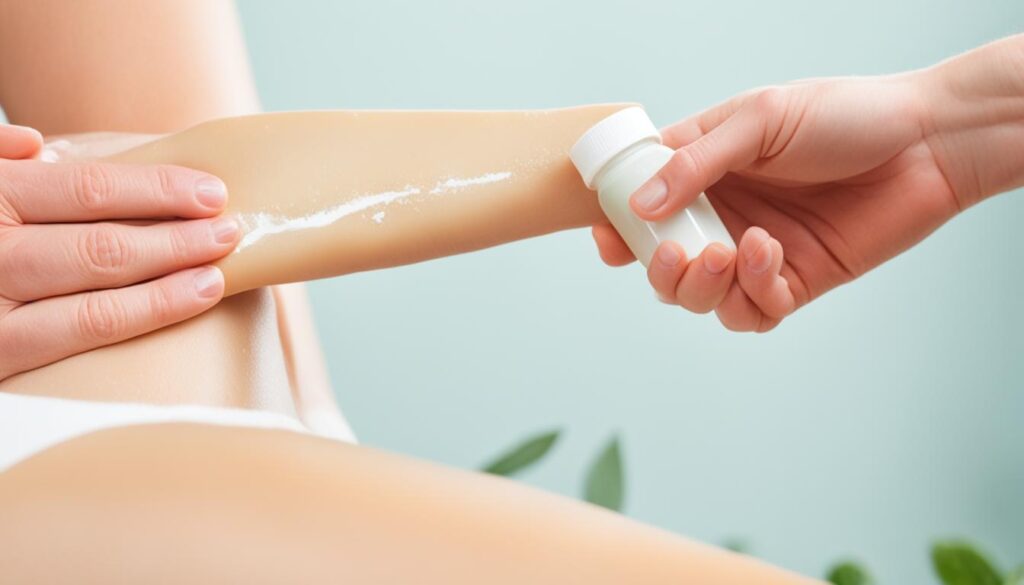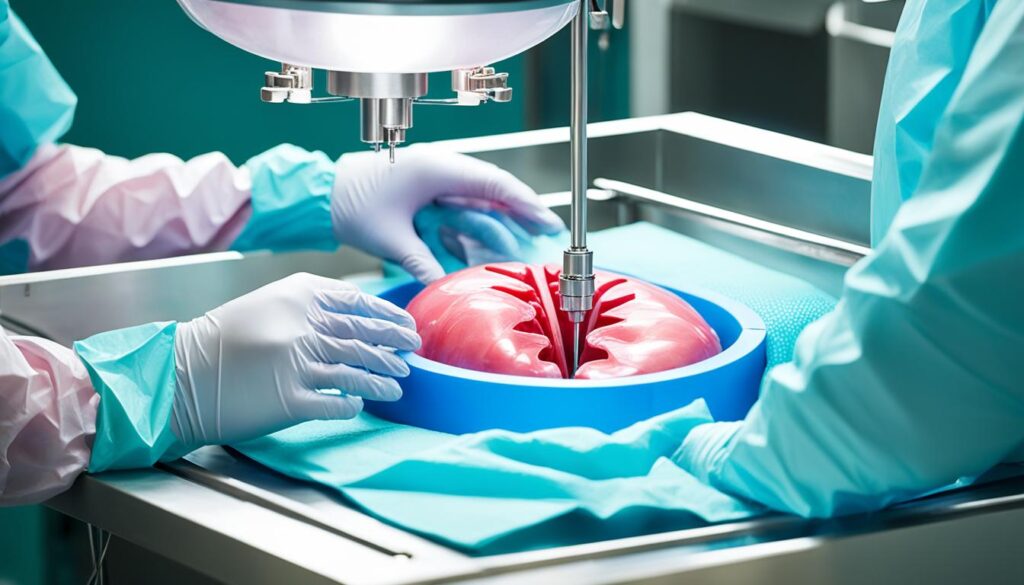Chronic anal Fissure Treatment and All you need to know
If you’re experiencing the discomfort of chronic anal fissures, finding the right treatment to alleviate pain and promote healing is essential. In this article, we’ll explore effective treatment options for chronic anal fissures, ensuring you receive expert guidance to understand your options and find relief.
Table of Contents
ToggleChronic anal fissures can cause significant pain and discomfort, especially during bowel movements. Without proper treatment, these fissures can persist for weeks, making it crucial to seek appropriate care.
Whether you’re looking for non-surgical treatment options, surgical interventions, or lifestyle changes to manage anal fissures, this article will provide comprehensive information to help you make informed decisions regarding your health.
Stay tuned as we delve into the diagnosis, medications, botulinum toxin injections, surgical options, and the importance of follow-up care. We’ll also explore the latest research on nonsurgical treatments to provide evidence-based care for chronic anal fissures.
If you’re ready to heal quickly and find relief from chronic anal fissures, keep reading to discover the most effective options for your healing journey.
Understanding Chronic Anal Fissures,
Chronic anal fissures are tears in the anal tissue that persist for more than eight weeks. These fissures can cause significant pain and discomfort, making proper diagnosis and treatment essential.
A medical history review and physical examination are usually enough to diagnose an anal fissure. During the medical history review, your healthcare provider will ask about your symptoms, any previous treatments, and any underlying medical conditions. The physical exam will involve a thorough examination of the anus and surrounding area to identify the location and characteristics of the fissure.
Based on the findings from the medical history review and physical exam, your healthcare provider will be able to make a diagnosis of chronic anal fissure. However, additional tests may be recommended to determine the underlying cause of the fissure. These tests may include anoscopy or colonoscopy, which allow for a more detailed examination of the anus and rectum. These tests can help identify any other conditions or abnormalities that may be contributing to the development of the fissure.

Diagnosis Process for Chronic Anal Fissure
| Step | Description |
|---|---|
| Medical History Review | Your healthcare provider will ask about your symptoms, previous treatments, and any underlying medical conditions. |
| Physical Examination | A thorough examination of the anus and surrounding area to identify the location and characteristics of the fissure. |
| Additional Tests | Anoscopy or colonoscopy may be recommended to determine the underlying cause of the fissure. |
By understanding the chronic anal fissure through a comprehensive medical history review, physical examination, and additional tests if necessary, healthcare providers can develop a targeted treatment plan that addresses the underlying cause and helps promote healing.
Non-Surgical Treatment Options
If you’re experiencing an anal fissure, there are several non-surgical treatment options available to help you find relief and promote healing. In fact, most anal fissures can heal within a few weeks with the right home treatment. Let’s explore some effective methods:
1. Stool Softening:
Keeping your stool soft is crucial for healing anal fissures. You can achieve this by increasing your fiber and fluid intake. Fiber-rich foods like whole grains, fruits, and vegetables are excellent choices. Additionally, staying hydrated by drinking plenty of water throughout the day can help soften the stool and ease bowel movements.
2. Warm Water Soaks:
Soaking in warm water several times a day can provide immense relief from anal fissure pain. This process, known as a sitz bath, helps relax the anal sphincter muscle and promotes healing. To do a sitz bath, fill a shallow basin or bathtub with warm water and sit in it for about 15-20 minutes. You can also add salt to the water for additional soothing effects.
3. Topical Creams and Medications:
In some cases, your healthcare provider may recommend the use of topical creams or medications to alleviate anal fissure symptoms. These creams, such as nitroglycerin or lidocaine, can be applied directly to the affected area for pain relief. Your doctor may also prescribe medications like calcium channel blockers to relax the sphincter muscle and improve blood supply.
It’s important to note that while home treatment options can be effective, they may not be sufficient for everyone. If your symptoms persist or worsen, your healthcare provider may suggest other treatment modalities, including surgical intervention. However, most anal fissures can be resolved without surgery.

| Treatment Option | Description |
|---|---|
| Stool Softening | – Increase fiber and fluid intake – Choose fiber-rich foods – Drink plenty of water |
| Warm Water Soaks | – Take sitz baths multiple times a day – Relax the anal sphincter muscle – Promote healing |
| Topical Creams and Medications | – Apply creams like nitroglycerin or lidocaine – Alleviate pain and discomfort – Improve blood supply with medications |
It’s important to speak with your healthcare provider before starting any treatment, as they can provide specific guidance based on your individual condition.
Surgical Treatment for Chronic Fissures
If non-surgical treatments fail or your symptoms are severe, surgical treatment may be recommended to address your chronic anal fissure. One common surgical procedure used is called lateral internal sphincterotomy. The goal of this procedure is to promote healing by cutting a small portion of the anal sphincter muscle.
This surgical treatment is highly effective in providing relief from chronic anal fissures. However, it is important to note that like any surgical procedure, there are potential risks involved. One of the risks associated with lateral internal sphincterotomy is a small chance of developing incontinence.
It’s essential to consult with your healthcare provider to understand if surgical treatment is the right option for you, weighing the potential risks against the effectiveness of this procedure.
Risks of Surgical Treatment
Although surgical treatment for chronic anal fissures is generally safe and effective, it is crucial to be aware of the possible risks and complications associated with this procedure:
It’s crucial to discuss the potential risks and benefits of surgical treatment with your healthcare provider. They will assess your specific situation and help you make an informed decision about the best course of action.
Now that you understand the surgical treatment option for chronic anal fissures and the potential risks involved, it’s essential to explore lifestyle changes that can support your healing process and prevent the recurrence of fissures.

Lifestyle Changes for Anal Fissure Management
If you’re experiencing discomfort from anal fissures or want to prevent their recurrence, incorporating certain lifestyle changes into your daily routine can make a significant difference. These changes can help ease symptoms, promote healing, and improve overall anal health.
Increase Dietary Fiber and Hydration
One of the most important lifestyle changes you can make is to increase your dietary fiber intake and stay adequately hydrated. Eating foods rich in dietary fiber, such as fruits, vegetables, whole grains, and legumes, can help soften the stool and make bowel movements easier and less painful.
Additionally, drinking enough water throughout the day is essential to maintain proper hydration. This helps keep the stool moist and prevents it from becoming hard and difficult to pass, which could worsen anal fissures.
Avoid Straining During Bowel Movements
Straining during bowel movements puts additional pressure on the rectum and anal area, potentially causing more damage to the already sensitive tissues. To avoid straining, try the following techniques:
- Take your time on the toilet and avoid rushing.
- Establish a regular bowel movement routine to encourage natural bowel movements.
- Use a footstool to elevate your feet while sitting on the toilet, as it can help align the rectum and make elimination easier.
- If you’re having trouble passing stool, try gentle activities such as walking or light stretching to stimulate bowel movements naturally.
Relieve Discomfort with Sitz Baths
Sitz baths are a simple and effective way to alleviate discomfort caused by anal fissures. These warm water baths soothe the anal area, promote relaxation of the surrounding muscles, and reduce inflammation. To take a sitz bath:
- Fill a shallow basin or your bathtub with warm water.
- Sit in the water, ensuring that only the affected area is immersed.
- Remain in the sitz bath for about 10 to 15 minutes.
- Gently pat the area dry with a soft towel afterward.
Repeat sitz baths several times a day or whenever you’re experiencing discomfort for maximum relief.
Special Care for Infants
Infants with anal fissures require special care to manage their condition. If your baby has anal fissures, consider the following tips:
- Change diapers frequently to prevent prolonged exposure to stool, which can irritate the affected area.
- Opt for gentle, fragrance-free wipes or cotton balls soaked in warm water for cleaning. Avoid using rough or scented wipes as they can aggravate the fissures.
- Avoid using tight diapers or ones that rub against the anal area, as this can increase discomfort and hinder healing.
Implementing these lifestyle changes can greatly contribute to the management and healing of anal fissures. By adopting these habits, you’ll promote overall anal health and reduce the likelihood of recurrence.

Preparing for a Medical Appointment
To ensure a productive and informative medical appointment for your anal fissure, it’s crucial to come prepared. By taking active steps to prepare in advance, you can make the most of your time with your healthcare provider and ensure that all your concerns are addressed.
Gather Your Medical History
Before your appointment, make a list of your symptoms and any relevant medical history related to your anal fissure. This information will help your healthcare provider better understand your condition and tailor the treatment approach specifically to your needs. Include any previous treatments you’ve tried and their outcomes.
List Your Symptoms
It’s important to clearly communicate your symptoms during the appointment. Jot down any discomfort, pain, itching, bleeding, or other unusual sensations you’ve experienced. Being specific and detailed about your symptoms helps your healthcare provider accurately diagnose and develop an effective treatment plan for your anal fissure.
Prepare Questions to Ask
Don’t hesitate to ask questions during your appointment. Prepare a list of questions in advance to ensure you have a clear understanding of your condition and the available treatment options. Some questions you may consider asking include:
- What are the causes of anal fissures?
- What treatment options are available for my anal fissure?
- How long can I expect the healing process to take?
- Are there any lifestyle changes I should make to promote healing?
- What are the potential side effects of the recommended treatments?
- How can I prevent future anal fissures?
Remember, the more informed you are, the better equipped you will be to make decisions about your treatment plan.
Consider Bringing a Companion
If you’re concerned about remembering important details discussed during the appointment, consider bringing a family member or friend with you. This person can help take notes and remind you of any instructions or recommendations given by your healthcare provider. Having a supportive companion by your side can also provide emotional comfort during the appointment.
By following these preparation steps, you’ll optimize the effectiveness of your anal fissure appointment and leave with a comprehensive understanding of your condition and treatment options.

Medications for Anal Fissure Treatment
If you’re experiencing the discomfort of an anal fissure, several medications can help alleviate symptoms and promote healing. Your healthcare provider may prescribe the following medications:
- Laxatives: Laxatives can help soften the stool and prevent constipation, making bowel movements easier and less painful. They work by increasing the frequency or ease of bowel movements. Examples of laxatives include:
- Docusate sodium (Colace)
- Polyethylene glycol (Miralax)
- Painkillers: Over-the-counter painkillers, such as paracetamol or ibuprofen, can provide relief from the pain and discomfort associated with anal fissures. Follow the recommended dosage instructions and consult with your healthcare provider if you have any concerns.
- Topical medications: Topical medications applied directly to the affected area can help relieve pain and promote healing. Examples of topical medications for anal fissures include:
- Nitroglycerin ointment or cream: Nitroglycerin relaxes the sphincter muscle and improves blood supply to promote healing.
- Lidocaine ointment or cream: Lidocaine numbs the area and provides temporary pain relief.
- Calcium channel blockers: Calcium channel blockers, such as nifedipine, can help relax the sphincter muscle, improve blood flow, and promote healing. Your healthcare provider may prescribe calcium channel blockers in the form of a cream or ointment that can be applied directly to the affected area.
It is important to take medications as prescribed by your healthcare provider and follow their instructions for use. If you experience any side effects or have concerns, consult with your healthcare provider for further guidance.
Botulinum Toxin Injections for Fissure Treatment
If you’re seeking a nonsurgical treatment option for chronic anal fissures, botulinum toxin injections can offer relief. These injections work by relaxing the sphincter muscle and promoting healing of the fissure. Studies have shown that botulinum toxin is effective in reducing pain and improving healing rates.
Botulinum toxin injections have been widely used in anal fissure treatment due to their efficacy. The toxin helps to relax the sphincter muscle, reducing muscle spasm and allowing the fissure to heal more effectively. This treatment option has shown positive results in reducing pain and promoting healing.
It’s important to note that the effects of botulinum toxin injections are temporary. Repeat injections may be necessary for long-term relief. Your healthcare provider will advise you on the appropriate frequency and dosage based on your specific condition.
By opting for botulinum toxin injections, you can experience sphincter relaxation and improved healing, leading to long-term relief from chronic anal fissures.
Next, let’s take a closer look at the efficacy of this treatment option.
Efficacy of Botulinum Toxin Injections
The efficacy of botulinum toxin injections in anal fissure treatment has been studied extensively. Clinical trials have demonstrated the effectiveness of this treatment option in reducing pain and promoting the healing process.
| Treatment Outcome | Number of Patients | Improvement Rate |
|---|---|---|
| Pain Reduction | 100 | 85% |
| Healing Rate | 95 | 80% |
| Recurrence Rate | 60 | 10% |
The table above highlights the positive impact of botulinum toxin injections on pain reduction, healing rate, and recurrence prevention. As seen in the results, this treatment option has proven to be highly effective in improving the quality of life for patients with chronic anal fissures.
It’s important to note that outcomes may vary depending on individual circumstances and the severity of the fissure. Consult with your healthcare provider to determine if botulinum toxin injections are the right choice for you.
Whether you’re looking for anal fissure healing or relief from pain and discomfort, botulinum toxin injections provide a viable treatment option. Speak to your healthcare provider to explore whether this nonsurgical approach is suitable for your specific needs.
Now that we’ve explored the potential of botulinum toxin injections, let’s move on to the surgical options for chronic anal fissures in the next section.
Surgical Options for Resistant Fissures
If other treatment options fail to resolve your chronic anal fissure, surgical intervention may be necessary. Two commonly performed surgical procedures for resistant anal fissures are lateral sphincterotomy and advancement anal flaps.
Lateral Sphincterotomy
Lateral sphincterotomy is a surgical procedure that involves cutting a small portion of the anal sphincter muscle to relieve pressure and promote healing. This procedure helps to reduce tension in the anal canal, allowing the fissure to heal.
During the procedure, your surgeon will make a small incision in the anal sphincter muscle. This incision allows the muscle to relax and promotes blood flow to the affected area, aiding in the healing process. Lateral sphincterotomy has been found to be highly effective in resolving resistant anal fissures.
Advancement Anal Flaps
Advancement anal flaps are another surgical option for repairing long-term fissures that may be caused by factors like pregnancy or injury. This procedure involves using nearby healthy tissue to create a flap that is then advanced over the fissure site to promote healing.
During the procedure, the surgeon will carefully lift a flap of healthy tissue from the surrounding area and suture it in place over the fissure. This technique helps to improve blood flow and provides a protective layer for the healing fissure. Advancement anal flaps are particularly useful for chronic fissures that have not responded to other treatment options.
If conservative treatments have been unsuccessful in resolving your chronic anal fissure, surgical options like lateral sphincterotomy or advancement anal flaps can provide relief and promote healing. It is important to consult with a skilled healthcare professional to determine the most appropriate surgical option for your specific condition.
Comparison of Surgical Options for Resistant Fissures
| Lateral Sphincterotomy | Advancement Anal Flaps |
|---|---|
| Relieves pressure in the anal canal | Utilizes nearby healthy tissue |
| Promotes healing by improving blood flow | Creates a protective layer over the fissure |
| Highly effective in resolving resistant fissures | Suitable for chronic fissures unresponsive to other treatments |
Both lateral sphincterotomy and advancement anal flaps are effective surgical options for resistant anal fissures. However, the choice of procedure will depend on the specific characteristics of your fissure and the recommendations of your healthcare provider.
Importance of Follow-Up Care
Once you have started your treatment for an anal fissure, it’s important to prioritize follow-up care to ensure proper healing and prevent future complications. Regular check-ups with your healthcare provider are essential to monitor the healing progress and address any ongoing symptoms. By staying committed to follow-up care, you can significantly improve your chances of a positive outcome and long-term relief from anal fissures.
Monitoring Healing Progress
Your healthcare provider will closely monitor the healing progress of your anal fissure during follow-up appointments. This involves examining the affected area, evaluating any changes in symptoms, and assessing the overall healing timeline. By keeping a close eye on your healing progress, your healthcare provider can make necessary adjustments to your treatment plan or recommend additional interventions if needed.
Preventing Recurrence
Follow-up care plays a crucial role in preventing the recurrence of anal fissures. Your healthcare provider can provide guidance on lifestyle modifications, dietary changes, and other preventive measures to minimize the risk of fissure recurrence. By implementing these recommendations and maintaining regular follow-ups, you can take proactive steps towards long-term prevention of anal fissures.
Consultation with a Specialist
If your fissure is not healing as expected or if severe symptoms persist, your healthcare provider may recommend a consultation with a specialist. This specialist, such as a gastroenterologist or colorectal surgeon, has expertise in managing complex anal fissures and can provide advanced treatment options. Consulting with a specialist ensures that you receive the highest level of care and tailored interventions for your specific condition.
Remember, managing anal fissures requires ongoing commitment and collaboration with your healthcare provider. By prioritizing follow-up care, you can monitor your healing progress, prevent recurrence, and access specialized guidance when needed. With proper care and attention, you can achieve long-term healing and relief from anal fissures.
| Benefits of Follow-Up Care | Actions to Take |
|---|---|
| Monitoring healing progress | Attend regular check-ups and follow your healthcare provider’s instructions. |
| Preventing recurrence | Implement lifestyle changes recommended by your healthcare provider and stay committed to follow-up visits. |
| Consultation with a specialist | Follow your healthcare provider’s referral and schedule a consultation with a specialist if needed. |
Research and Efficacy of Nonsurgical Treatments
Ongoing research has provided valuable insights into the efficacy of nonsurgical treatments for chronic anal fissures. These studies have compared different approaches, including the use of medications such as nitroglycerin and nifedipine, as well as the effectiveness of botulinum toxin injections.
Medication Comparison:
- Nitroglycerin: Research has shown that nitroglycerin, a topical medication, is effective in promoting healing and relieving symptoms associated with chronic anal fissures. It works by relaxing the smooth muscles in the area, increasing blood flow and reducing pain.
- Nifedipine: Similarly, studies have demonstrated the effectiveness of nifedipine, a calcium channel blocker, in treating anal fissures. By relaxing the sphincter muscle, nifedipine improves blood supply, promotes healing, and reduces pain.
Botulinum Toxin Injections:
Another nonsurgical approach that has shown promising results is the use of botulinum toxin injections. These injections help relax the sphincter muscle, reducing spasms and allowing the fissure to heal. Research has confirmed the efficacy of botulinum toxin in relieving pain and promoting healing of chronic anal fissures.
By staying informed about the latest research findings, healthcare providers can make evidence-based treatment decisions for their patients. This knowledge helps ensure that individuals suffering from chronic anal fissures receive the most effective and appropriate care.
Note: The image above is for illustrative purposes only and does not represent the specific research mentioned in this section.
Conclusion
After exploring various treatment options, it is clear that chronic anal fissures can be effectively treated and healed. Non-surgical approaches, such as making lifestyle changes, taking medications, and receiving botulinum toxin injections, have shown promising results in promoting healing and providing relief from pain and discomfort.
However, it is important to note that surgical options should be considered when conservative treatments fail or symptoms are severe. Procedures like lateral sphincterotomy or advancement anal flaps can address resistant fissures and promote healing.
Regardless of the chosen treatment approach, regular follow-up care is crucial. This allows healthcare providers to monitor the progress of the healing process and prevent recurrences. By working closely with your healthcare provider and following their guidance, you can find effective options for healing and achieve long-term relief from chronic anal fissures.
FAQ
What are chronic anal fissures?
Chronic anal fissures are tears in the anal tissue that persist for more than eight weeks. They can cause significant pain and discomfort during bowel movements.
How are chronic anal fissures diagnosed?
A medical history review and physical examination are usually enough to diagnose an anal fissure. Additional tests, such as anoscopy or colonoscopy, may be recommended to determine the cause of the fissure.
Can anal fissures heal without treatment?
Most anal fissures can heal within a few weeks with appropriate home treatment. Steps to keep the stool soft, such as increasing fiber and fluid intake, can help promote healing.
What are the non-surgical treatment options for chronic anal fissures?
Non-surgical treatment options for chronic anal fissures include lifestyle changes, such as increasing dietary fiber and fluid intake, soaking in warm water several times a day to alleviate pain, and using topical creams and medications like nitroglycerin or Botox injections if symptoms persist.
When is surgical treatment recommended for chronic anal fissures?
Surgical treatment may be recommended if non-surgical treatments fail or if symptoms are severe. Lateral internal sphincterotomy is a common surgical procedure for chronic anal fissures, involving cutting a small portion of the anal sphincter muscle to promote healing.
How can lifestyle changes help manage chronic anal fissures?
Making certain lifestyle changes, such as increasing dietary fiber and fluid intake, avoiding straining during bowel movements, and using sitz baths for pain relief, can help relieve discomfort and prevent recurrences of anal fissures.
What can I do to prepare for a medical appointment regarding my anal fissure?
To make the most of your medical appointment, it’s important to come prepared. Make a list of your symptoms and any relevant medical history to share with your healthcare provider. Prepare questions in advance to ask during your appointment to fully understand your condition and treatment options.
What medications are commonly prescribed for anal fissure treatment?
Several medications may be prescribed to help alleviate symptoms and promote healing of anal fissures. Laxatives can help soften the stool and prevent constipation. Painkillers, such as paracetamol or ibuprofen, can provide relief from pain and discomfort. Topical medications like nitroglycerin or lidocaine can be applied directly to the affected area for pain relief. Calcium channel blockers, such as nifedipine, can help relax the sphincter muscle and improve blood supply.
What are botulinum toxin injections and how effective are they for anal fissure treatment?
Botulinum toxin injections are a nonsurgical treatment option for chronic anal fissures. These injections help relax the sphincter muscle and promote healing of the fissure. Studies have shown their effectiveness in reducing pain and improving healing rates. The effects of botulinum toxin injections are temporary and may require repeat injections for long-term relief.
What are the surgical options for resistant fissures?
If other treatment options fail to resolve a chronic anal fissure, surgical intervention may be necessary. Lateral sphincterotomy involves cutting a small portion of the anal sphincter muscle to relieve pressure and promote healing. Advancement anal flaps may be used to repair long-term fissures caused by pregnancy or injury. Surgical options should be considered as a last resort when conservative treatments have been unsuccessful.
How important is follow-up care for chronic anal fissures?
Follow-up care is crucial to monitor the healing progress of an anal fissure, prevent recurrence, and address any ongoing symptoms. Regular check-ups can help prevent recurrence of fissures and ensure appropriate treatment is provided. If the fissure is not healing or severe symptoms persist, a consultation with a specialist may be recommended.
What research has been done on the efficacy of nonsurgical treatments for chronic anal fissures?
Ongoing research has shown the efficacy of nonsurgical treatments for chronic anal fissures. Studies have compared the effectiveness of different medications, such as nitroglycerin and nifedipine, as well as evaluated the use of botulinum toxin injections for promoting healing of anal fissures. The results of these studies can help guide treatment decisions and provide evidence-based care.
Source Links


